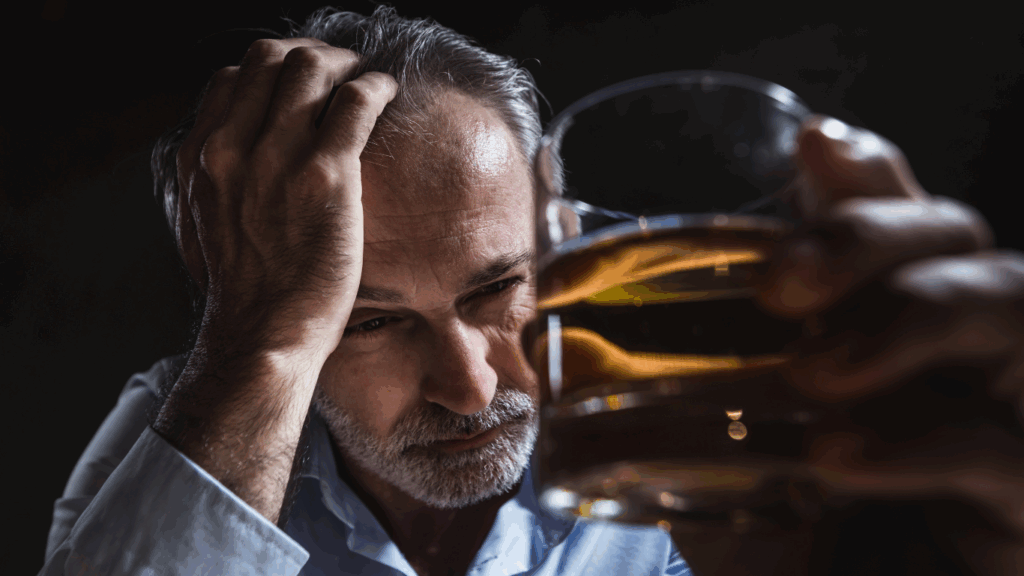Alcohol is deeply embedded in our society. It’s readily available, legal, and often a central part of social gatherings. From casual dinners to winery tours and celebrations with friends at local breweries, alcohol consumption is perceived as normal. However, the effects of alcohol are far from ordinary. It’s a dangerous substance that contributes to millions of deaths worldwide each year.
While alcohol might seem to calm the mind and relax the body, it can have serious, unseen consequences. Our alcohol addiction treatment in Marietta, Georgia, at Hand in Hand Recovery, we understand the complexities of alcohol addiction and offer comprehensive support to help you reclaim your life.
The Alarming Statistics of Alcohol Abuse
The prevalence of alcohol abuse is a significant concern. Consider these statistics:
- In 2019, 85% of adults reported consuming alcohol in their lifetime, with nearly 70% having had a drink within that year.
- Binge drinking, defined as 5 or more drinks on one occasion for men and 4 or more for women, affects approximately 25% of adults in the U.S., with the highest rates among young adults aged 18-34.
- Heavy drinking, characterized by 15 or more drinks per week for men and 8 or more for women, impacted approximately 14.5 million adults in the U.S. in 2019. Of those, 5.8% reported heavy drinking.

The overconsumption of alcohol has devastating effects on the body, with long-term use leading to liver disease, heart disease, cancer, and mental health disorders like anxiety and depression. Alcohol-related liver diseases alone claim approximately 24,000 lives each year.
The impact of alcohol abuse extends beyond individuals, affecting the economy through healthcare costs, reduced job productivity, and expenses related to the criminal justice system. In 2010, alcohol abuse cost the U.S. nearly $250 billion.
Understanding Alcohol Addiction
Alcohol addiction is a complex disorder that affects a person’s ability to control their drinking. It’s also known as alcoholism or alcohol use disorder (AUD).
People with alcohol addiction often feel a strong need to drink. They may have trouble stopping once they start. This can lead to problems in their daily life, work, and relationships. AUD is considered a spectrum disorder. This means it can range from mild to severe.
Genetics plays a role in alcohol addiction. If a person’s parents have AUD, they may be more likely to develop it, too. But genes aren’t the only factor.
Other risk factors for alcohol addiction include:
- Starting to drink at a young age
- Mental health issues like depression or anxiety
- Stress
- Peer pressure
Heavy drinking and binge drinking can increase the risk of developing AUD. Binge drinking means having 4 or more drinks for women or 5 or more for men in about 2 hours.
Alcohol addiction can cause serious health problems. It can harm the liver, heart, and brain. It can also lead to accidents and risky behavior.
Dangers and Physical Health Problems from Alcohol Addiction
Alcohol addiction can lead to serious health issues. People who drink too much face higher risks of many diseases and problems.
Liver disease is a significant concern. Too much alcohol can damage liver cells and cause scarring. This can lead to cirrhosis, a life-threatening condition.
Heavy drinking raises the risk of certain cancers. These include cancers of the mouth, throat, esophagus, liver, and breast.
Alcohol addiction can harm the heart. It may cause high blood pressure and increase the chance of heart disease and stroke.
Drinking while pregnant can cause congenital disabilities. Fetal alcohol spectrum disorders can lead to physical and mental problems in children.
Alcohol abuse weakens the immune system. This makes it harder for the body to fight off illnesses and infections.
Long-term heavy drinking can cause bone loss. This raises the risk of fractures and osteoporosis.
Alcohol addiction often leads to poor nutrition. This can cause vitamin deficiencies and other health issues.
Excessive drinking increases the risk of diabetes. It can make it harder to control blood sugar levels.
Alcohol abuse is linked to higher rates of violence and accidents. This includes car crashes, falls, and drownings.
Heavy drinking can cause stomach problems. These may include ulcers and inflammation of the stomach lining.

Importance of Treatment
Getting treatment for alcohol addiction is crucial. It can save lives and improve health.
Treatment helps people stop drinking and learn to live without alcohol.
There are many types of treatment available:
- Inpatient rehab
- Outpatient programs
- Support groups
- Counseling
- Medication
Alcoholics Anonymous and SMART Recovery are two well-known support groups. They offer peer support and help people stay sober.
Recognizing Alcohol Addiction: Signs to Watch For
If you suspect you or someone you know has a problem with alcohol, seeking support is crucial. A healthcare provider can assess the physical impact, while an addiction therapist can develop a personalized recovery treatment plan. Recognizing the signs of alcohol addiction is the first step toward recovery:
- High Tolerance: Needing more alcohol to achieve the desired effects.
- Withdrawal Symptoms: Experiencing nausea, anxiety, sweating, and trembling when not consuming alcohol.
- Ignoring Harmful Consequences: Continuing to drink despite negative impacts on health, relationships, and work or school.
- Intense Cravings: Feeling an overwhelming desire to drink when alcohol is unavailable.
- Inability to Limit Intake: Struggling to control or reduce alcohol consumption despite attempts to do so.
Understanding Alcohol Withdrawal Symptoms
Withdrawal from alcohol can significantly impact both the physical and psychological well-being. Symptoms can range from mild to severe and may include:
- Anxiety or nervousness
- Depression
- Fatigue
- Irritability
- Shakiness or tremors
- Sweating
- Rapid heartbeat
- Headache
- Insomnia
- Nausea and vomiting
- Loss of appetite
- Confusion
- Seizures
Withdrawal from heavy alcohol use can be dangerous and even fatal. Medical supervision during detox is essential to manage symptoms and prevent complications.
The Alcohol Withdrawal Timeline
The alcohol withdrawal timeline can vary, but generally follows these stages:
- Stage 1 (Within 6 hours to 1 week): Nausea, shakes, changes in blood pressure, anxiety, and sleep disturbances.
- Stage 2 (Within 1-2 days, lasting up to 1 week): Symptoms from Stage 1, plus seizures and depression.
- Stage 3 (Within 2-3 days, lasting several days): Symptoms from Stage 2, plus delirium tremens (DTs).
- Stage 4 (For extreme dependence, lasting months to years): Post-acute withdrawal symptoms (PAWS), including ongoing mood changes and persistent symptoms from earlier stages.
Alcohol Addiction Treatment Programs at Hand in Hand Recovery
At Hand in Hand Recovery, we offer comprehensive addiction treatment programs tailored to your needs. Our evidence-based approaches include behavioral therapy to address the root causes of addiction and promote lasting recovery. We offer access to Intensive Outpatient Programs (IOP) and Partial Hospitalization Programs (PHP).
- Intensive Outpatient Program (IOP): Our IOP offers a flexible treatment option, requiring approximately 9 hours per week, typically split into three days. IOP can be easily integrated into your schedule with day and evening options. It’s ideal for individuals who need more support than traditional outpatient services but don’t require residential care.
- Partial Hospitalization Program (PHP): Our PHP is a more intensive program requiring medical detox completion. At our rehab facility, participants attend treatment for several hours a day, several days a week. PHP includes individual therapy, group therapy, medication management, and other support services. It’s designed for individuals needing more intensive treatment than an outpatient program or completing inpatient treatment, but cannot commit to full-time inpatient care.
Find Support for Alcohol Addiction Today
If alcohol is negatively impacting your life, Hand in Hand Recovery is here to help. We offer compassionate, evidence-based care to guide you on your journey to recovery. Contact us today at (470) 280-2791to learn more about our programs and take the first step toward a healthier, happier life.

 info@handinhandrecovery.com
info@handinhandrecovery.com 3411 Austell Road Suite 200, Marietta, Georgia, United States
3411 Austell Road Suite 200, Marietta, Georgia, United States

